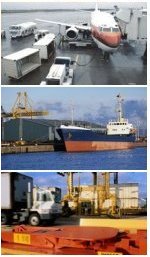

 |
 |
 |
Articles & Information<<Back to Articles/Information Index>> AUSTRALIAN OLIVE OIL PRODUCER LOSES DUMPING AND SUBSIDY COMPLAINT AGAINST EUROPEANSAustralian Customs recently terminated its investigation concerning exports of olive oil from Spain, Italy and Greece because the complainant had failed to prove that EC subsidies were 'countervailable' or that dumping into the Australian market had caused material injury to the complainant. Facts The target of the complaint by Inglewood Olive Processors Limited (with its major label Viva) was an EC production aid scheme that was administered through producer organisations in various European countries. The aid was paid each year to olive growers until what is known as a national guaranteed quota is reached. The main argument of the Australian producer was that this aid was paid to growers lowered the price through the production stage and, consequently, enabled price undercutting when the goods were exported to Australia. The European Commission, together with exporters and importers of European olive oil argued that the subsidies paid to the growers simply represented a benefit at the first stage in a long chain of production and that the eventual price paid by the consumer was the result of market forces and supply and demand along the various stages of production. The EC also argued that there was little or no vertical integration of ownership in the industry, e.g. as between growers and the mills, and, accordingly, there was no evidence that the benefit of the subsidy would pass through to exporters. The European interests relied heavily on a recent WTO panel finding of United States – Final Counterveiling Duty Determination With Respect To Certain Other Softwood Lumber From Canada . This Decision stands for the proposition that any allegation that the benefit of a subsidy paid to one party passes through to another party must be proven by positive evidence and an adjudicator cannot assume that it occurs. The Australian producers argued that this case was distinguishable because it was only applicable to subsidies granted for upstream products and, in the current situation, the subsidy was paid in respect of olive oil volumes, despite the fact that it was paid to growers. Customs engaged an economist who found that because of the different numbers of stages in the selling process between the grower and the exporter, a 'passing through' benefit of the subsidy could not be demonstrated. In respect of the allegations of dumping, Australian Customs found that Inglewood did suffer injury as a result of dumping that took the form of price undercutting, price depression, lack of profits, etc. Australian Customs, however, determined that there was a lack of causation between the dumping and the price injury. Customs considered a number of other industry factors which would have affected prices, irrespective of the presence of the goods sold at dump prices in the Australian market. These included the fact that Inglewood bought market share in the established market and then lowered its prices over the injury period to maintain its market share. Secondly, there were numerous start up costs which affected the price and profitability of Inglewood's Viva product. Thirdly, Inglewood is not a large scale producer compared with the European exporters and, accordingly, there is a greater per unit cost of production. Finally, the prices of Viva products were very influenced by the purchasing strategies of major Australian supermarkets. Based on the above factors, Australian Customs found that the applicant failed on the issue of causation. It is of note to mention that one of the major factors causing price injury was also low world prices due to the dominant position of EU production, most of which is subsidised. This, of itself, was not sufficient in the direct sense to establish dumping. Customs noted that the recent lowering of world prices was part of the cycle of supply and demand and could not be attributed simply to the specific production aid. It will be interesting to see to what extent, in future investigations, Customs rely upon other industry and competition factors in analysing whether the imports have caused material injury to a local producer. Ross Becroft. BA. LL.B. M Comm. Law Louis Gross & Associates |
|
|
Home |
Our Services |
Our People The information you obtain at this site is not, nor is it intended to be, legal advice.
Copyright ©2007 by Gross & Becroft lawyers . All rights
reserved. |